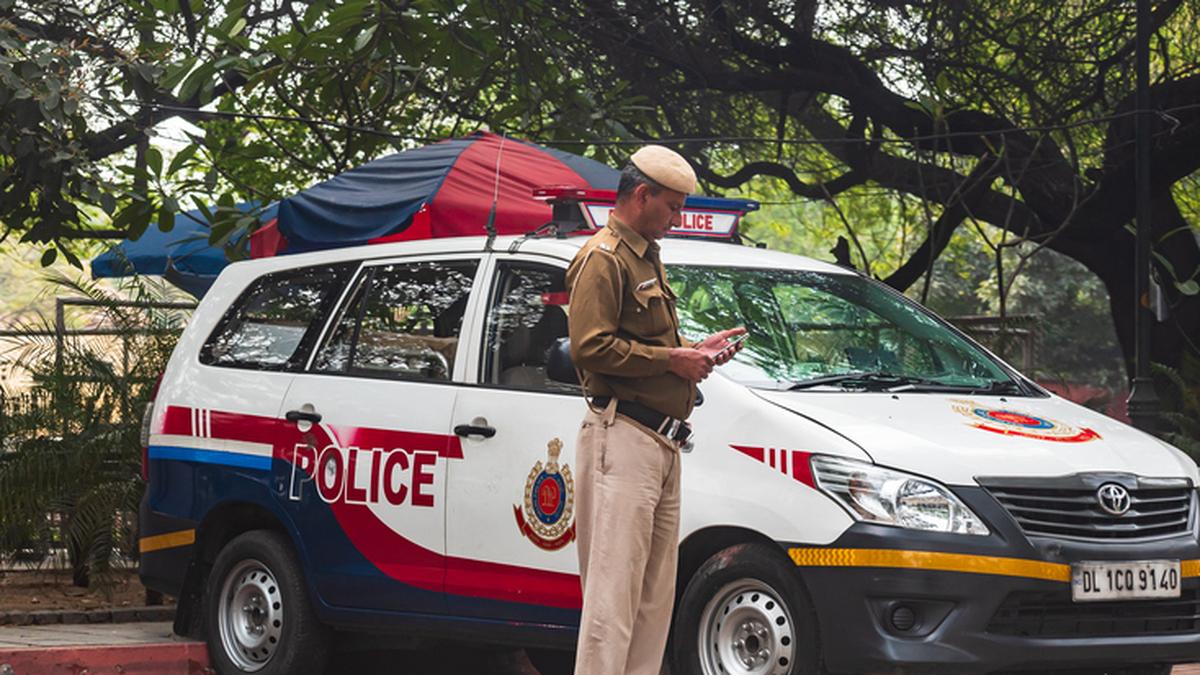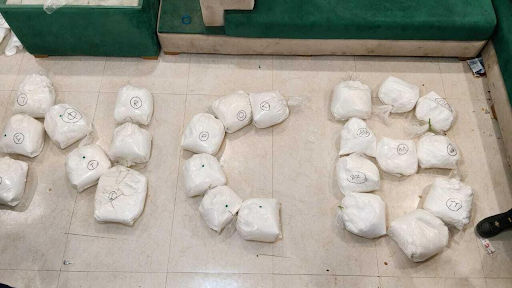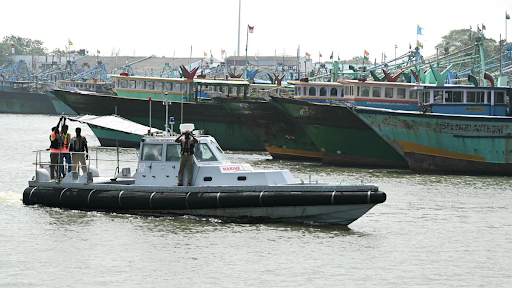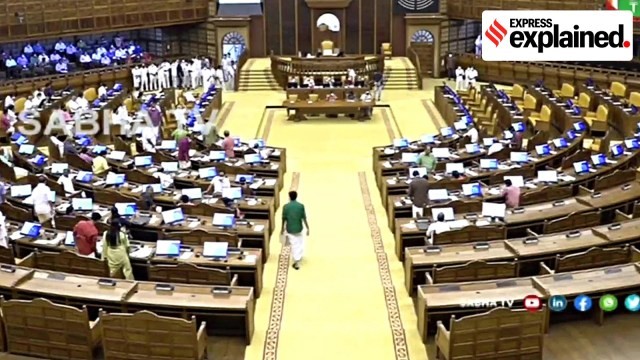Description
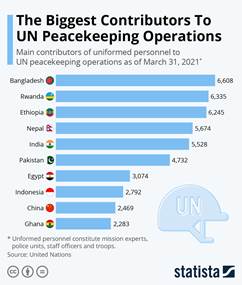
Disclaimer: Copyright infringement not intended.
Context: Two BSF personnel who were part of the UN Peacekeeping Mission in the Democratic Republic of the Congo (DRC), were among five people killed during a protest in an eastern town near the border with Uganda
Details:
- A total 175 Indian peacekeepers have so far died while serving with the United Nations.
- India has lost more peacekeepers than any other UN Member State.
- Since 1948, UN Peacekeepers have undertaken 71 Field Missions.
- There are approximately 81,820 personnel serving on 13 peace operations led by UNDPO, in four continents currently. This represents a nine-fold increase since 1999.
- A total of 119 countries have contributed military and police personnel to UN peacekeeping. Currently, 72,930 of those serving are troops and military observers, and about 8,890 are police personnel.
- India has a long history of service in UN Peacekeeping, having contributed more personnel than any other country. To date, more than 2,53,000 Indians have served in 49 of the 71 UN Peacekeeping missions established around the world since 1948.
- Currently, there are around 5,500 troops and police from India who have been deployed to UN Peacekeeping missions, the fifth highest amongst troop-contributing countries.
- India has also provided, and continues to provide, eminent Force Commanders for UN Missions. India is the fifth largest troop contributor (TCC) with 5,323 personnel deployed in 8 out of 13 active UN Peacekeeping Missions, of which 166 are police personnel.
- India’s contribution to UN Peacekeeping began with its participation in the UN operation in Korea in the 1950s, where India’s mediatory role in resolving the stalemate over prisoners of war in Korea led to the signing of the armistice that ended the Korean War
- The UN entrusted the Indian armed forces with subsequent peace missions in the Middle East, Cyprus, and the Congo (since 1971, Zaire).
- India also served as Chair of the three international commissions for supervision and control for Vietnam, Cambodia, and Laos established by the 1954 Geneva Accords on Indochina.
- India has been sending women personnel on UN Peacekeeping Missions. In 2007, India became the first country to deploy an all-women contingent to a UN Peacekeeping Mission. The Formed Police Unit in Liberia provided 24-hour guard duty and conducted night patrols in the capital Monrovia, and helped to build the capacity of the Liberian police
- In addition to their security role, the members of the Indian Formed Police Unit also organised medical camps for Liberians, many of whom have limited access to health care services.
- Indian veterinarians serving with the UN Mission in South Sudan (UNMISS), stepped up to help cattle herders who were losing much of their stock to malnutrition and disease in the war-torn nation. The Indian contingent in South Sudan has provided vocational training and life-saving medical assistance, as well as carrying out significant road repair work.
- The Indian contingent in the Upper Nile region (includes the Indian Battalion, the Horizontal Mechanical Engineering Company, the Level II hospital, the Petroleum Platoon and the Force Signal Unit) have all received UN Medals of Honour.
- India has provided 17 Force Commanders to various Missions. Besides the Force Commanders, India also had the honour of providing two Military Advisers, one Female Police Adviser, and one Deputy Military Adviser to the Secretary General of the United Nations.
- India was the first country to contribute to the Trust Fund on sexual exploitation and abuse, which was set up in 2016.
- India is of the view that the international community must grasp the rapid changes that are underway in the nature and role of contemporary peacekeeping operations. The Security Council’s mandates to UN Peacekeeping operations need to be rooted in ground realities, and co-related with the resources provided for the peacekeeping operation.
Process of Decision Making
- To efficiently attain a particular end or objective, an ordered and cohesive scheme must be established: this is the decision-making process that will lead to the most appropriate plans.
- An Integrated Mission Planning Process is the product of the UN's integrated mission operations.
- Aside from the police component, integrated missions have a military component, a civilian component, and mission support.
- In UN missions there are three planning levels:
- Strategic;
- Operational and,
- Tactical
- The tactical planning is produced within each component, while the strategic and operational planning are connected.
- The concept of maneuver and the associated orders to be carried out by FPU personnel are the result of a methodical analysis of various factors that lead to a decision that is always in accordance with the mission mandate, UN doctrine, the rule of law, and strategic and operational level guidelines and orders.

|
Note:
· The United Nations' Department of Peace Operations oversees peacekeeping as a "tool designed by the organisation as a method to assist countries devastated by war in creating the conditions for durable peace."
· Peacekeepers monitor and watch post-conflict peace processes, as well as assisting ex-combatants in executing peace accords they may have signed.
· As a result, UN peacekeepers (also known as Blue Berets or Blue Helmets because to their light blue berets or helmets) might be military, police officers, or civilians.
|
Principles of Peacekeeping
These three principles are inter-related and mutually reinforcing:
- Consent of the parties
- The key parties to a dispute provide their approval for UN peacekeeping forces to be deployed.
- This necessitates the parties' commitment to a political process.
- Their approval of a peacekeeping mission gives the UN with the essential political and physical independence to carry out its statutory objectives.
- Impartiality
- Impartiality is essential for retaining the key parties' consent and cooperation, but it should not be confused with neutrality or inaction.
- Peacekeepers from the United Nations should be impartial while dealing with conflict parties, but not neutral when carrying out their mandate.
- Non-use of force except in self-defence and defence of the mandate
- UN peacekeeping missions are not intended to be used as a means of enforcing the law.
- They may, however, employ force at the tactical level with the Security Council's permission if acting in self-defense or to defend the mandate.
Role of India
- India has participated in 49 UN peacekeeping deployments so far, contributing over 200,000 troops and a large number of police officers.
- With 7,860 people deployed with 10 UN Peacekeeping Missions in 2014, India is the third largest troop contributor nation [TCC], with 995 of them being police officers, including the UN's first female formed police unit.
- The United Nations recently praised Indian peacekeepers for their efforts in avoiding a massacre in the South Sudan conflict, which resulted in the deaths of two Indian soldiers.
https://indianexpress.com/article/explained/india-role-un-peacekeeping-missions-over-the-years-explained-8055483/
1.png)






